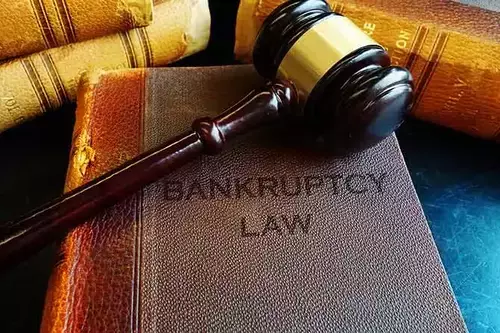Admin • Jan 04, 2018

Filing bankruptcy is often a last resort when faced with insurmountable debt that you're unable to pay back. Most people who file bankruptcy are responsible debtors who find themselves swimming in debt due to unforeseen financial hardship, such as extended job loss and illness.
Various types of bankruptcy are available to help honest debtors get a fresh start. You'll need to decide which bankruptcy is most suitable for your situation. Chapter 7 and Chapter 13 are two common types of bankruptcy. Here are some of the advantages of filing bankruptcy under Chapter 13.
Saves Your Home From Foreclosure
If you have a home, then filing under Chapter 13 stops foreclosure procedures. This enables you to avoid foreclosure, and it gives you the opportunity to keep your home and catch up on your mortgage payments over time - a process known as curing mortgage default.
Chapter 13 essentially allows you to make up missed mortgage payments so that you save your home from being foreclosed on and sold at auction. The repayment plan is based on what you can afford, which is determined by a combination of IRS Collection Standards and your monthly expenses.
The IRS allows a certain amount of reasonable and necessary expenses. Your lawyer will use guidelines governed by bankruptcy law to reorganize your debt and determine your payment priorities.
Discharges Debts You're Unable to Pay in Full
Chapter 13 bankruptcy allows you to pay back what you can afford over the course of a three- to five-year payment plan. This typically means that you'll end up paying a fraction of your total debt. The majority of people who file under Chapter 13 aren't able to pay 100 percent of their debts in full - if they could, they likely wouldn't have a need to file bankruptcy in the first place.
The debt that is left over after you complete your three- to five-year payment plan is discharged so that you can get a fresh start. You won't incur additional interest on the discharge-eligible debt.
This means you'll be completely out of debt within three to five years. If you chose not to file bankruptcy, then you'll likely find yourself even deeper in debt within the same time frame.
Impacts Credit for a Shorter Period
No matter which bankruptcy you file under, it will show up on your credit report and impact your credit score. The good news is that this impact is temporary, and your credit is likely already impacted by excess debt and delinquencies.
A bankruptcy will remain on your credit report for seven to 10 years, depending on which type of bankruptcy you file under. The advantage of filing under Chapter 13 is that the bankruptcy will remain on your credit report for 7 years, as opposed to 10 years for Chapter 7.
Once the bankruptcy is removed, your credit score will no longer be impacted. During the time that it is on your credit report, the impact on your score decreases with each year that passes.
Lowers Car Payments
Many debtors find themselves upside down in their car loan payments, which is when the amount you owe is higher than the value of the vehicle. This happens due to increased interest rates. Filing bankruptcy under Chapter 13 gives you the best chance to reduce your car payments.
During the reorganization of your debts, the car will go under your repayment plan. In order to lower your car payment, you have the option to use a process called cramming down, which reduces high interest rates and lowers the principal balance on the car.
To cram-down your car loan, you'll need to meet certain criteria, but most debtors are able to successfully lower their car payments through Chapter 13.
Filing for bankruptcy can give you the fresh start you deserve. Contact the team at Brace W. Luquire for a free consultation.
Content, including images, displayed on this website is protected by copyright laws. Downloading, republication, retransmission
or reproduction of content on this website is strictly prohibited. Terms of Use | Privacy Policy